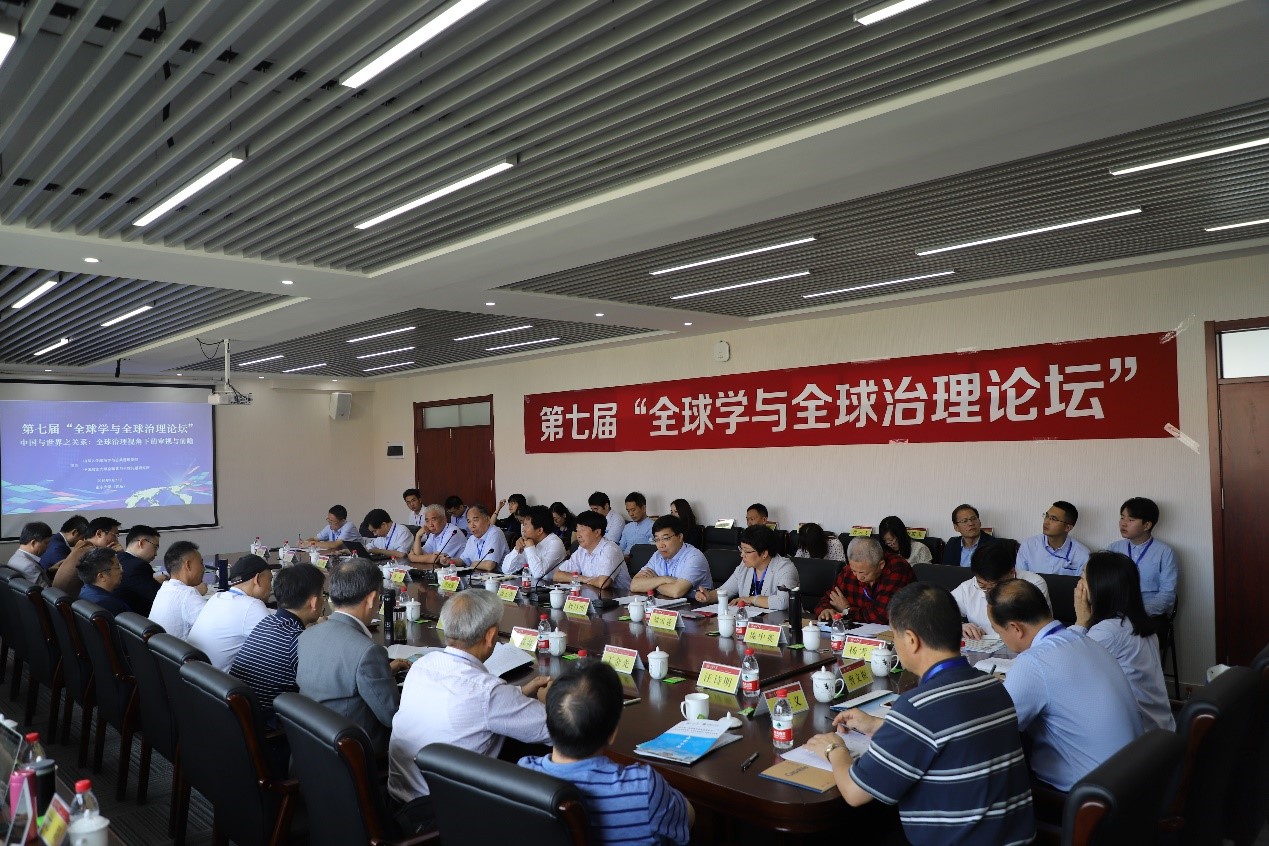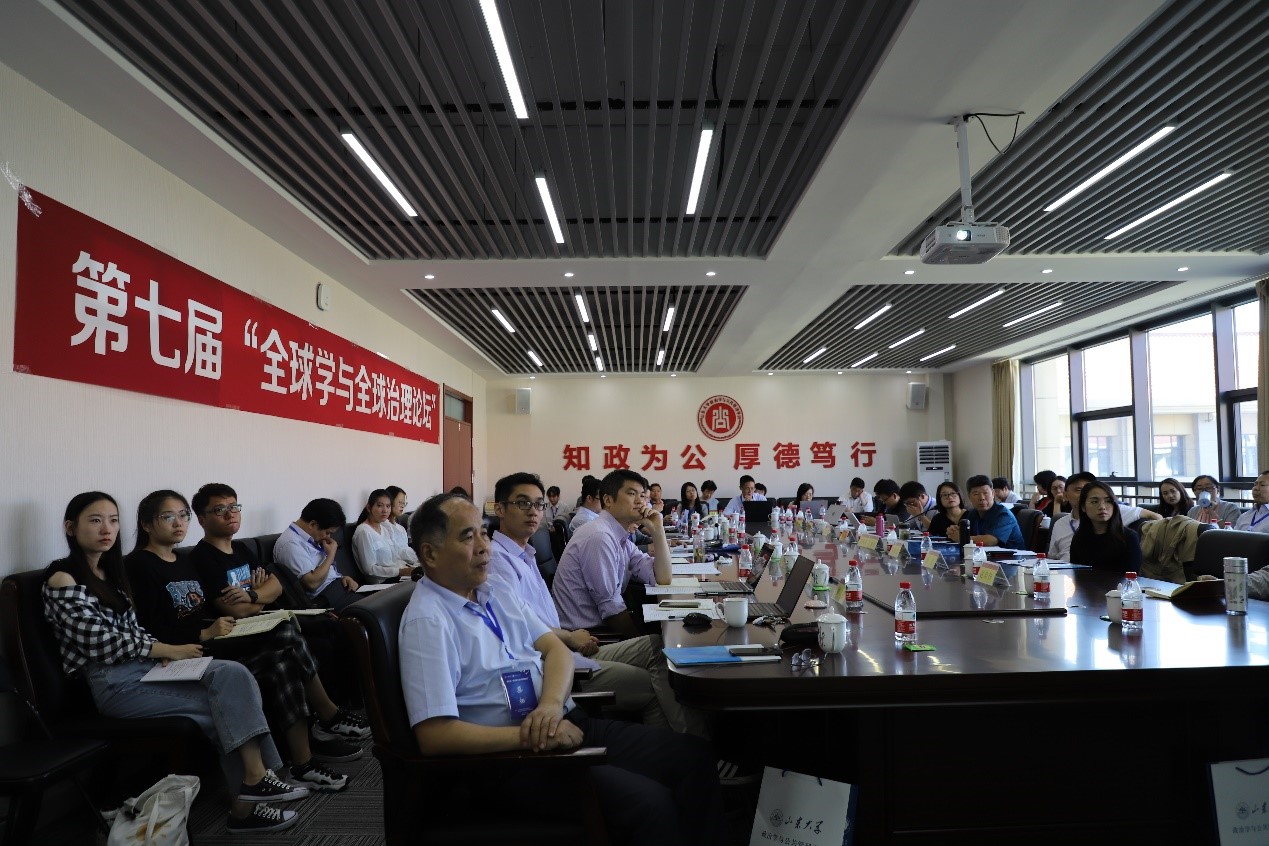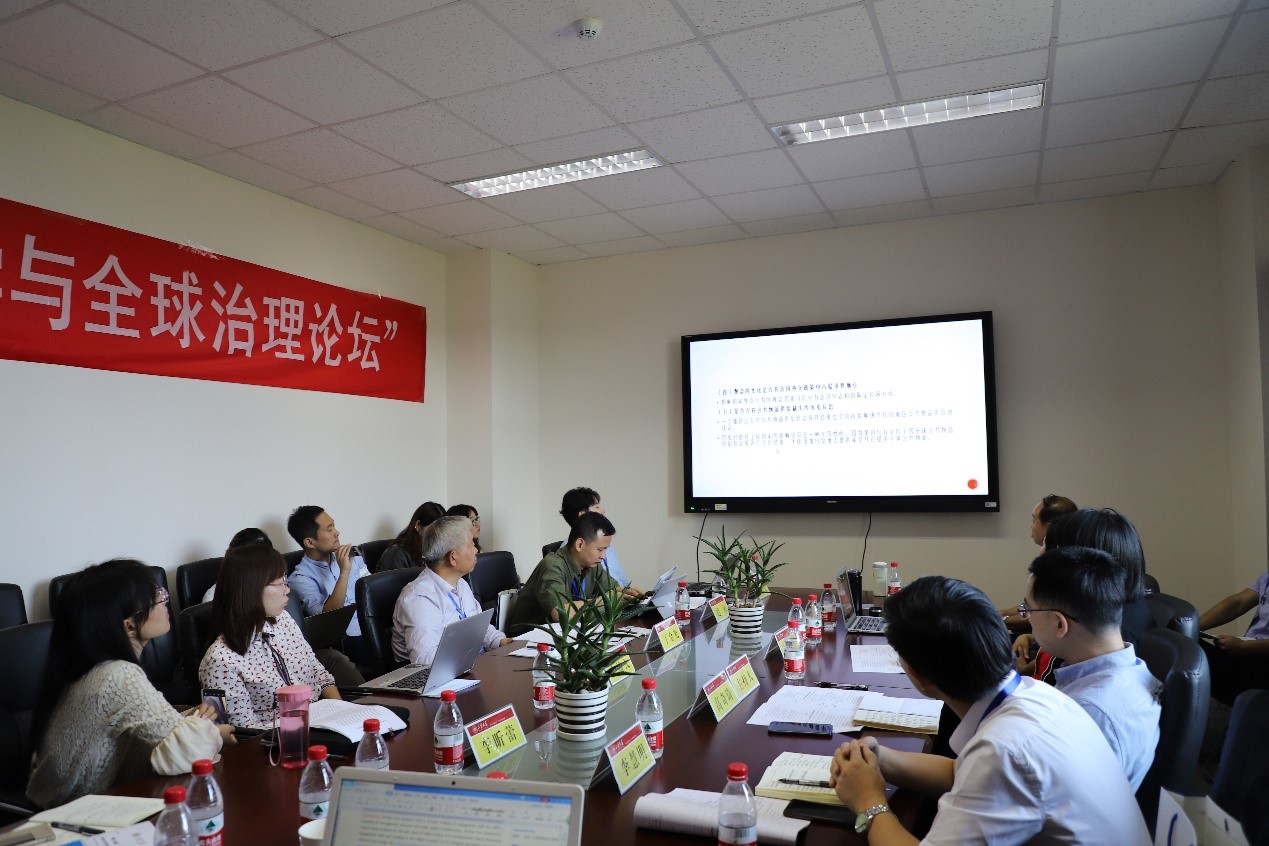On September 21st, the 7th Global Studies and Global Governance Forum was successfully held in the South Building of Huagang Courtyard, Qingdao Campus of Shandong University. It was jointly organized by the School of Political Science and Public Administration of Shandong University and the Globalization and Global Issues Institute of China University of Political Science and Law. Chief editors and senior editors from famous journals in the field of international political science and more than 50 experts and scholars attended from universities and research institutes such as China University of Political Science and Law, Nankai University, Jilin University, East China University of Political Science and Law, Yanbian University, Guangdong University of Foreign Studies, Suzhou University, Northwest Normal University, Ocean University of China, Qingdao University, Jinan University, Yantai University, Central Research Institute of Party History and Literature and the Chinese Academy of Social Sciences. Participants discussed and exchanged ideas on the theme of“China's relationship with the world: scrutiny and foresight from the perspective of global governance”.

Liu Changming, deputy dean of the School of Political Science and Public Administration, presided over the opening ceremony. Cao Xianqiang, Vice President of Shandong University (Qingdao) fully affirmed the value of this academic theme in his speech. He said that the tides of anti-globalization and deglobalization are raging in the current international community, unilateralism and nationalism prevail, the international pattern and national power are relatively evolved, and the international community faces a split in culture and values. In this context, it is of great theoretical and practical significance to reflect on the issues and practices of global governance and to explore the ways in which China participates in global governance. Gai Yuqiang, secretary of the Party Committee of the school, also said that grasping the new trend of global governance under the vision of the relationship between the major powers and rethinking the research progress of the global governance theory is conducive to discipline construction and policy formulation.
Looking back at the history of China's relations with the world, Cai Tuo, the honorary director of the Institute Globalization and Global Issues of the China University of Political Science and Law, and the vice president of Chinese Collegiate Society of International Studies, believed that promoting reform and opening in the tide of globalization and seeking self-development becomes a main line to cognize relations between China and the world. It is currently the best period for China's relations with the world, and it is also a period of greater challenges and challenges. The concept of the community of human destiny has opened up new prospects for the relationship between China and the world, providing the international community with conceptual international public goods, helping to curb the populism that has emerged in the West and exploring an pattern of international relationship that transcends realism and geopolitical traditions and seeking a new path of peace and sustainable development for human.

Thinking about the new situation of global governance and China's participation, Zhu Guichang, a professor at the School of Political Science and Public Administration of Shandong University, presented the changes in China's identity recognition when participating in global governance. He believed that the changes of China's perception of its own identity in different periods is the epitome of changes in relationships between China and the world and the "self" cognition and the "other" cognition are often biased. In this regard, Zhuang Junju, director of the editorial department of the Journal of International Studies, said that only by strengthening mutual understanding between China and the world can China's behavior in the process of advancing the reform of the global governance system be accepted and supported, thereby enhancing the legitimacy of participation. Pang Zhongying from the Institute of Marine Development of Ocean University of China believed that enhancing understanding means not only letting the world understand "what role China is", but also letting the world understand "why China do it", thus urging the international community to redefine the role of China in global governance.Researcher Yang Xuedong from the Central Party History and Literature Research Institute and Zhang Zhexing, deputy editor of the China Quarterly of International Strategic Studies, believed that the concept of "community with shared future for mankind" fully demonstrates the global vision and can become a value window for the world to understand China. Wu Zhicheng, director from the Academy of Global Studies at Nankai University, believed that China should strengthen the construction of “global governance capabilities” that is the quality and skills of providing global public goods. China should focus on improving the capacity of global governance from three aspects: hard power, soft power and smart power.
Speaking of the theoretical construction of global science, Liu Zhenhua, deputy director of the Globalization and Global Issues Institute at the China University of Political Science and Law, believed that standing in China and seeing the world gives us a more focused view of China’s interests and behavioral preferences on the global stage which makes the subject more grounded. Looking at China from a global perspective has enabled us to have a clearer understanding of Chinese characteristics and to inspire us to rationalize and integrate “Chinese characteristics” and then make it global while “internalizing” globalization.

It is reported that the conference has four sub-forums and a round-table forum, covering many frontier issues and new paths, such as the future of artificial intelligence, research on the "uncertainty" of the international society from the perspective of risk society theory, and the paradigm conversion of border governance, etc.